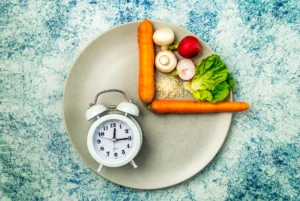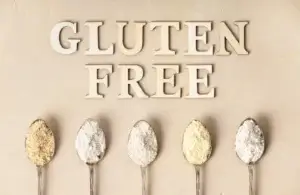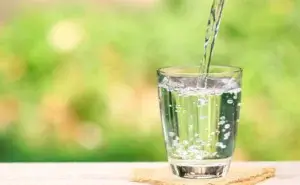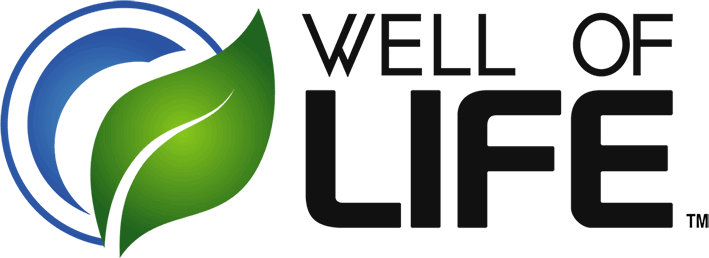
The Hidden Power of Fasting Intermittent: Unlock Natural Healing
Fasting intermittently is a popular way to improve health and wellness. It involves alternating between eating and fasting periods, allowing flexibility for those who want

In the world of essential nutrients, zinc stands out as a powerful ally in promoting overall health and well-being. This often-overlooked mineral plays a crucial role in various bodily functions, from supporting immune function to aiding in wound healing. As we embark on a nutritional journey, let’s delve into the world of vegan foods high in zinc that can contribute to a healthier, more vibrant you.
Zinc is more than just a dietary element; it is an essential micronutrient that influences numerous physiological processes in our bodies. Zinc plays an important role in maintaining optimal health, from strengthening our immune defenses to promoting proper growth and development. Because our bodies do not produce zinc naturally, it is critical that we consume zinc-rich foods.
Embark on this nutritional exploration with us as we uncover the richness of foods high in zinc. Our blog will be your companion in discovering the keys to a healthier and more vibrant lifestyle. Get ready to nourish your body, boost your immunity, and savor the flavors of a zinc-rich diet. Let’s unlock the secrets of zinc together for a journey towards better health!

Zinc is an essential trace element found within various food items. Zinc is an important micronutrient that plays a crucial role in various physiological processes in the human body. The activity of numerous enzymes requires the involvement of zinc, and it is an essential nutrient for growth, immune function, wound healing, and overall health. Including vegan foods that are zinc-rich foods in the diet is crucial to maintaining adequate zinc levels in the body.
The recommended dietary intake of how much zinc the body requires can vary depending on factors such as age, gender, life stage, and individual health conditions. The values provided here are general guidelines and individual needs may differ.
The Recommended Dietary Allowance (RDA) for zinc, as established by the United States National Academies of Sciences, Engineering, and Medicine, is as follows:
Infants:
0-6 months: 2 mg/day
7-12 months: 3 mg/day
Children:
1-3 years: 3 mg/day
4-8 years: 5 mg/day
9-13 years: 8 mg/day
Adolescents and Adults:
Males 14-18 years: 11 mg/day
Females 14-18 years: 9 mg/day
Males 19 years and older: 11 mg/day
Females 19 years and older: 8 mg/day
Lactating and Pregnant Women:
Pregnant females 14-18 years: 12 mg/day
Pregnant females 19 years and older: 11 mg/day
Lactating females 14-18 years: 13 mg/day
Lactating females 19 years and older: 12 mg/day
The amount of zinc required to meet the nutritional needs of nearly all healthy people at each stage of life is the base for the recommendation. Dietary habits, absorption efficiency, health conditions, and lifestyle can influence individual zinc requirements.
It’s generally preferable to obtain nutrients, including zinc, through a balanced and varied diet rather than relying solely on supplements
Zinc deficiency occurs when the body does not have enough zinc to meet its physiological needs. It is an essential mineral that plays a crucial role in various biochemical processes, and a deficiency can lead to a range of health issues.
Here are some key aspects of zinc deficiency:
Inadequate Dietary Intake
The most common cause of zinc deficiency is insufficient consumption of zinc-rich foods. This can be particularly relevant in diets that lack meat, seafood, dairy products, and other sources of zinc.
Poor Absorption
Certain conditions, such as celiac disease, Crohn’s disease, and other gastrointestinal disorders, can impair the absorption of zinc, leading to deficiency.
Vegetarian or Vegan Diets
Plant-based diets may provide less bioavailable zinc per part, as certain compounds in plant foods, such as phytates, can inhibit zinc absorption.
Increased Zinc Requirements
Conditions that increase the body’s demand for zinc, such as growth spurts in children, pregnancy, and lactation, can contribute to deficiency if dietary intake is not adjusted accordingly.
Impaired Immune Function
Zinc is crucial for the proper functioning of the immune system. Deficiency can lead to increased susceptibility to infections.
Delayed Wound Healing
The process of tissue repair involves zinc, and a deficiency may result in delayed wound healing.
Growth and Development Issues
In children, zinc deficiency can lead to growth retardation and delayed sexual maturation.
Skin Problems
Skin issues, such as dermatitis and other skin disorders, may occur.
Loss of Appetite
Zinc deficiency can lead to a reduced sense of taste and smell, resulting in a loss of appetite.
Hair Loss
Hair loss and changes in hair texture is a symptom of severe zinc deficiency.
Cognitive Impairment
Cognitive function involves zinc, and a deficiency may affect memory and attention.

Zinc deficiency is typically diagnosed by examining dietary intake, symptoms, and, in some cases, laboratory tests that measure zinc levels in the blood. Addressing the underlying cause and, if necessary, increasing zinc intake through dietary changes or supplements are part of the treatment. However, it is advisable to have the supervision of a healthcare professional when taking supplements, as too much zinc can be harmful.
If someone suspects they have a zinc deficiency or is experiencing symptoms, they should see a doctor for a thorough evaluation and appropriate treatment.
For individuals following a vegan diet, incorporating plant-based foods that are relatively high in zinc will aid in obtaining sufficient zinc amounts. It’s important to note that compounds like phytates can influence zinc absorption from plant sources. Including a variety of zinc-rich foods in your diet and being mindful of food preparation methods can help enhance zinc absorption.
Here are some vegan foods rich in zinc:
Legumes:
Chickpeas
Lentils
Black beans
Kidney beans
Nuts and Seeds:
Pumpkin seeds (pepitas)
Hemp seeds
Sunflower seeds
Almonds
Cashews
Sesame seeds
Whole Grains:
Quinoa
Brown rice
Oats
Whole wheat products
Vegetables:
Spinach
Kale
Mushrooms (especially shiitake and crimini mushrooms)
Tofu and Tempeh:
Tofu and tempeh are soy-based products that contain moderate amounts of zinc.
Vegetarian Meats:
Zinc is often added to some plant-based meat substitutes.
Nutritional Yeast:
Nutritional yeast is a common ingredient in vegan diets and is often fortified with zinc.
Breads and Cereals:
Zinc is often added to some whole-grain breads and cereals to increase their nutritional value.
Vegetables and Fruits:
While fruits and vegetables generally contain lower amounts of zinc, including a variety in your diet contributes to overall nutrition.
Seaweed:
Certain types of seaweed, such as nori and spirulina, contain small amounts of zinc.

Soaking and Sprouting
Soaking and sprouting legumes, nuts, and seeds can help reduce the phytate content, potentially enhancing zinc absorption.
Cooking Methods
Certain cooking methods, such as fermenting and leavening, can also help reduce phytates and improve zinc bioavailability.
Diverse Diet
Consuming a variety of vegan foods rich in zinc can provide a broader range of nutrients and improve overall zinc intake.
If you have concerns about meeting your zinc needs on a vegetarian or vegan diet, or suspect a deficiency, it’s advisable to consult with a registered dietitian or healthcare professional. They can provide personalized guidance to ensure you are meeting your nutritional requirements. Additionally, it is advisable to monitor zinc levels via blood tests for individuals with specific health concerns.
It’s important to note that the bioavailability of zinc from plant-based sources can be lower compared to animal-based sources. This is because certain compounds found in plant foods, such as phytates, can inhibit the absorption of zinc. However, a well-balanced and varied diet that includes a mix of animal and plant-based zinc sources can contribute to meeting the body’s zinc requirements. However, for vegan and vegetarian diets you may require zinc supplementation to reach the required zinc levels.
Zinc supplementation involves taking zinc in the form of a dietary supplement to address any zinc deficiencies themselves, meet increased nutritional needs, or support specific health goals. It’s important to note that while zinc is an essential trace mineral necessary for various bodily functions, excessive intake can lead to adverse effects.
Here are types of zinc supplements:
Gluconate: Another form of zinc supplement, often used in over-the-counter products.
Picolinate: This form is believed to have good bioavailability.
Orotate: Sometimes used in supplement formulations.

Several natural factors can decrease zinc absorption, and optimizing these factors may enhance the bioavailability of zinc from dietary sources.
Here are some strategies and nutrients that may contribute to increased zinc absorption:
Phytates, compounds found in some plant foods, can inhibit zinc absorption. Foods containing phytase, an enzyme that breaks down phytates, can help reduce their inhibitory effects. Examples include certain whole grains, nuts, and seeds.
Fermenting foods can help break down phytates and improve zinc absorption. Examples of fermented foods include sauerkraut, kimchi, and certain types of fermented grains.
Some cooking methods, such as soaking, sprouting, and leavening, can reduce the phytate content in foods, potentially improving zinc bioavailability. For example, soaking legumes before cooking or sprouting grains may be beneficial.
Adequate vitamin D levels can improve zinc absorption. Foods rich in vitamin D include fatty fish, fortified dairy products, and exposure to sunlight. For vegans or vegetarian diets, a vitamin D supplement can help increase absorption.
Excessive intake of calcium and iron supplements may interfere with zinc absorption. It’s advisable to avoid taking zinc supplements along with high doses of these minerals. However, moderate amounts of dietary calcium and iron from food sources are generally well-tolerated.
Copper is another essential mineral that may influence zinc metabolism. Maintaining a balance between copper and zinc is important for overall health. Foods rich in copper include nuts, seeds, and legumes.
High-fiber diets may reduce zinc absorption. While fiber is essential for digestive health, it’s beneficial to consume a well-balanced diet that includes a mix of fiber and zinc-rich foods.
Some studies suggest that zinc picolinate, a form of zinc supplement, may have better absorption compared to other forms.
Vitamin C and zinc often work together synergistically, and their combination can offer potential health benefits. Both of these nutrients play crucial roles in supporting the immune system and overall health, and their interaction is particularly notable in the context of immune system function. However, too much zinc can deplete copper levels.
In conclusion, embracing a vegan lifestyle and ensuring an adequate intake of zinc is not only achievable but also beneficial for overall health. The journey towards incorporating vegan foods rich in zinc into your diet offers a multitude of advantages, ranging from improved immune function to enhanced skin health.
By prioritizing plant-based sources of zinc such as legumes, seeds, nuts, and whole grains, individuals can maintain optimal zinc levels without relying on animal products. This not only aligns with ethical and environmental considerations regarding animal foods but also contributes to a well-rounded and balanced diet.
It’s essential to emphasize variety in food choices to maximize the intake of different nutrients. Combining vegan foods rich in zinc with a diverse range of fruits, vegetables, and other plant-based sources ensures a holistic approach to nutrition.
Moreover, paying attention to meal planning and potential sources of zinc-absorption inhibitors, such as phytates, can further enhance the effectiveness of a vegan zinc-rich diet. Cooking methods like soaking, sprouting, and fermenting can help mitigate the impact of these inhibitors, allowing for better absorption of this essential mineral.
In the pursuit of better health through a vegan lifestyle, it’s crucial to stay informed, listen to your body, and, if needed, consult with a healthcare professional or a registered dietitian. With thoughtful consideration and a well-rounded approach to nutrition, one can enjoy the benefits of a vegan diet while meeting the body’s zinc requirements for optimal health and well-being.

Fasting intermittently is a popular way to improve health and wellness. It involves alternating between eating and fasting periods, allowing flexibility for those who want

Gluten-free lifestyles might seem intimidating, particularly if you’re just getting started. All sorts of tasty and healthy options that you may not have thought of

Basic Health for Men: A Gentle Guide for a Better Lifestyle Health for men is a topic that is often overlooked because there are more

The Power of A Digital Detox: Revitalizing Your Life A digital detox is needed now more than ever, as digital devices are our most valuable

The Role of Chlorine Dioxide in Holistic Healing: Alternative Therapies Chlorine dioxide (CDS), also known as the miracle solution, has been underestimated for many years.

A vertigo dizziness remedy can be difficult to find as vertigo can be an unsettling experience. This often leads to a spinning sensation and feeling


This website or its third-party tools use cookies, which are necessary for its functioning and required to achieve the purposes illustrated in the cookie policy. You accept the use of cookies by closing or dismissing this notice, by clicking a link or button or by continuing to browse otherwise.